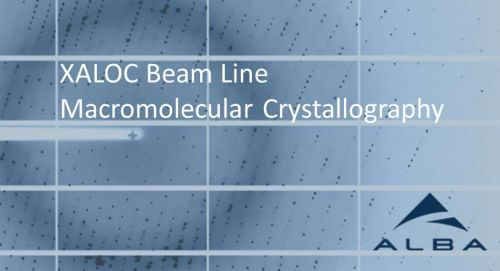
20/07/2018
Molecular mimicry does not mislead ALBA!
Molecular mimicry does not mislead ALBA!
Many intracellular pathogens use molecular mimicry to ensure their survival. A part of a protein of the pathogen resembles another protein totally different from the host and many intracellular microorganisms use this capability to interfere in cellular processes that enable their survival and replication.
Researchers from the CIC bioGUNE in the Basque Country in collaboration with other groups from the United States have carried out experiments at the XALOC beamline of the ALBA Synchrotron and I04 beamline of Diamond Light Source (UK). The results enabled scientists to solve the structure of RavN, a protein of the Legionella pneumophila bacteria that uses this molecular mimicry to trick the infected cell.
Researchers have showed that the structure of RavN has a certain structural similarity with E3 eukaryotes (a set of enzymes) despite its different composition. This result allows making progress in the understanding of the molecular mechanisms active in Legionnaires' disease that can transform into pneumonia and kill infected people.
Article: Yi-Han Lin et al. in PLOS Pathogen
Researchers from the CIC bioGUNE in the Basque Country in collaboration with other groups from the United States have carried out experiments at the XALOC beamline of the ALBA Synchrotron and I04 beamline of Diamond Light Source (UK). The results enabled scientists to solve the structure of RavN, a protein of the Legionella pneumophila bacteria that uses this molecular mimicry to trick the infected cell.
Researchers have showed that the structure of RavN has a certain structural similarity with E3 eukaryotes (a set of enzymes) despite its different composition. This result allows making progress in the understanding of the molecular mechanisms active in Legionnaires' disease that can transform into pneumonia and kill infected people.
Article: Yi-Han Lin et al. in PLOS Pathogen
More news
10/11/2015
Natura Bissé in the Barcelona Synchrotron Park
05/11/2015
Two Research Centers Awarded at the UAB University
28/10/2015
How ideas grow, the new Barcelona Synchrotron Park video
20/10/2015
Welcome to Barcelona
08/10/2015
Good News for Two PRUAB Spin-Offs
30/09/2015
BSC-CNS Director, Prof. Valero, Recipient of the Seymour Cray Computer Engineering Award









